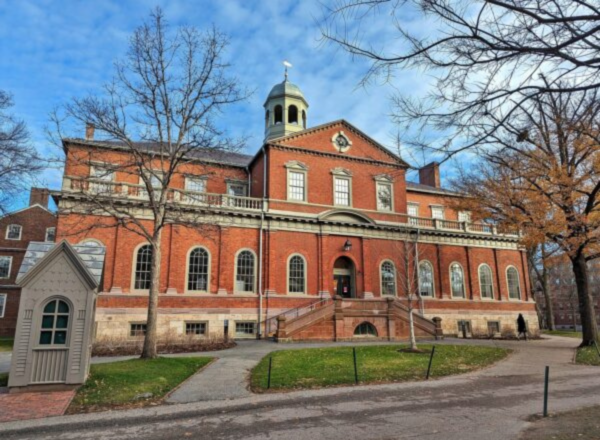Steve Whitaker, Head of School, The First Academy
In an interview with Invest:, Steve Whitaker, Head of School at The First Academy, discussed the institution’s approach to learning and its role within the Florida Council of Independent Schools. He also touched on the future of education and the importance of STEAM. “It’s critical for students today to understand the range of experiences required across that STEAM scope,” Whitaker said.
How does The First Academy’s approach to learning contribute to student success regarding college acceptance and entering the workforce?
Since the school began in 1986, we have had 100% of our students admitted to college yearly. That is the marker that connects to our mission. We are a college preparatory school. Preparing students to be leaders in the marketplace is critical for us. Our differentiator in this marketplace of independent schools is that we are a faith-based organization.
On the one hand, we want to be incredibly competitive academically. On the other hand, we want to be very committed to preparing students for life as Christian leaders, to have a good moral compass, a good center, good stability in their view of the world, and to discern what is good and what is not good; what the things are that need to keep us grounded throughout our walk every day, whether it is in business, raising a family, or being a good spouse. We want to be in this marketplace, committed to our faith and committed to strong academics.
How do extracurricular activities contribute to the overall success of students?
80% of our middle and upper school students participate in some extracurricular activity, such as arts or athletics. That is one of the best leadership training things we do. Learning to win, how to succeed, receive criticism, work hard, persevere through difficult times, make corrections, be a good teammate, and be empathetic to others – all of those things are learned, whether on the athletic field or in the theater as part of a performance. This athletic and arts component is essential to us in preparing Christian leaders, which is our purpose. We invest in it, believe in it, and encourage students to participate in everything they can possibly squeeze into their busy schedules.
How has the demand for your academic programs shifted based on your interaction with your student body and employers?
We are in a great environment due to House Bill 1, enacted in August last year. At least in our case, we have waiting lists for every grade level, from K-12. You also have to think about what to do next. The market is tremendous, and the demand for our service is overwhelming. In Orlando, we’re benefitting from the excellent tourism industry, the strong housing market, and tech arriving in the city. All those things have allowed our families to experience all the good things that The First Academy offers.
How does the school integrate a global perspective and embody a diverse population?
Our student body is diverse, so when we think about education, we think about it from a global perspective. We have students from South America, Asia, and worldwide who come here to participate in our academic, athletic, and arts programs. Our students are with kids from all over the world every day and understand what different cultures are like, what it means to flourish in those cultures, and what it takes to succeed in them. We do have student trips to different places around the world. We had a large group of students in Israel this summer just before all the difficulty began. Those kinds of experiences are life-changing for students.
What role does STEAM play in preparing students for adult life and entering the workforce?
It’s critical for students today to understand the range of experiences that are required across that STEAM scope. If you think about technology, it undergirds all you do in STEAM. As an Apple Distinguished school, which we’ve been for the last ten years, we integrate technology
into all we do, whether general academics or STEAM programs. It’s just essential. We want our kids to leave here well prepared, having experienced all they need to experience before landing on the most competitive college campuses in America.
How do you see the school contributing to regional development and community engagement?
We’re part of the Florida Council of Independent Schools (FCIS), schools from Tallahassee to Miami and everywhere. Our teachers are invested in the professional development of Florida’s independent schools. Our students compete locally in the Citrus League, an association of independent schools. We believe strongly in the independent school movement in Florida, and it is flourishing under the leadership of Barbara Hodges, the president of FCIS. I can’t say enough good about the programs they provide, the connections they make for our teachers and our students, and the benefit they are to our school program.
How do you see the future of education evolving in light of recent global and technological changes?
The lines between traditional K-12 education and post-secondary education will become more blurred than they already are. The advent of credentials and badging to replace traditional baccalaureate degrees will be something that emerges. We’ve launched a K-16 strategy that is contemplating that. In the next two to three years, we plan to have accreditation, allowing our students to end their high school careers with a high school diploma and an associate of arts degree. The quicker they become active in the marketplace, their career track will be more successful. It’s going to be an exciting time. Those who are resistant to innovation will find themselves left behind. We want to be free of many traditions. The future is in those who innovate and adapt to the changing environment.
What technology is being leveraged at The First Academy, and what tools are used to enhance learning?
We are an Apple Distinguished school, which means the kids work through their Apple devices, such as laptops in the high school, to create, take tests, and manage coursework. That extends into the digital creation of art. That extends to our kids’ broadcast communication work, producing a weekly television broadcast that is presented within the school community. Everything you can imagine today touches technology; even music creation is a technological event. We’re on the front end of looking at what Al means in the life of a K-12 school. Rather than resisting that, we’re trying to embrace it and equip our students to understand how to use that effectively and within the confines of good character. The next wave for schools like ours is going to be around AI. What do you do with Al? How do you employ that into the curriculum, how do you equip students to use it in the right ways to do good things with that? That’s the next wave for schools like ours to understand.
What is following in the pipeline for The First Academy, and what are the top priorities moving forward?
There are two strategic areas of focus for us. One is what we will do with the potential of expanding our campus operations throughout the city; not to stay just on a single campus but to look at a multicampus strategy. The second is to continue to pursue our K-16 initiative. How can we participate in the creation of higher education opportunities for our students, even in this community? Those are the two things I’m focused on over the next ten years.













